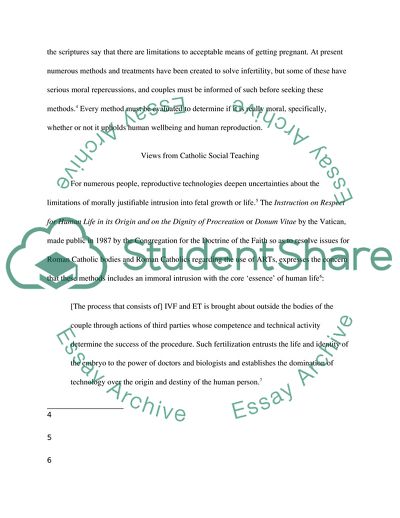Cite this document
(Reproductive Technologies - Ethics of Embryo Adoption Literature review Example | Topics and Well Written Essays - 1750 words, n.d.)
Reproductive Technologies - Ethics of Embryo Adoption Literature review Example | Topics and Well Written Essays - 1750 words. https://studentshare.org/ethics/1877861-research-eassy
Reproductive Technologies - Ethics of Embryo Adoption Literature review Example | Topics and Well Written Essays - 1750 words. https://studentshare.org/ethics/1877861-research-eassy
(Reproductive Technologies - Ethics of Embryo Adoption Literature Review Example | Topics and Well Written Essays - 1750 Words)
Reproductive Technologies - Ethics of Embryo Adoption Literature Review Example | Topics and Well Written Essays - 1750 Words. https://studentshare.org/ethics/1877861-research-eassy.
Reproductive Technologies - Ethics of Embryo Adoption Literature Review Example | Topics and Well Written Essays - 1750 Words. https://studentshare.org/ethics/1877861-research-eassy.
“Reproductive Technologies - Ethics of Embryo Adoption Literature Review Example | Topics and Well Written Essays - 1750 Words”. https://studentshare.org/ethics/1877861-research-eassy.


